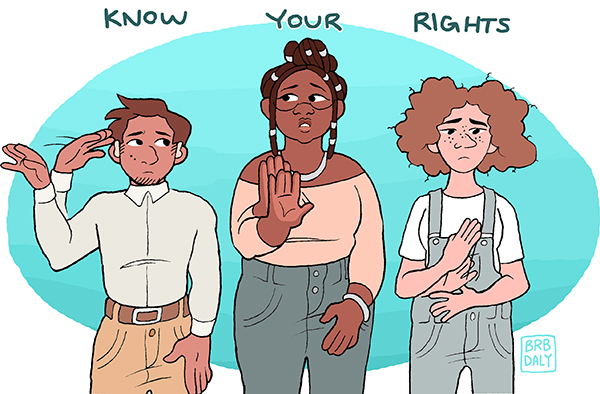Drivers with communication disorders have the option to indicate their disorder on their vehicle registration under a new Texas law.
Senate Bill 976, also called the Samuel Allen Law, passed on June 10. Named after and pushed by a Texas A&M-San Antonio graduate with Asperger’s syndrome, the bill allows drivers with communication disorders such as deafness, autism and intellectual disabilities to indicate it on documentation. The law went into effect Sept. 1.
Joseph Chacon, Austin Police Department assistant chief, said an officer will be able to enter a driver’s license plate information into a system that will indicate whether the driver has a communication disorder. The officer will not know which specific disorder the driver has.
“It certainly would have been something great to have back when I was making patrol stops … just to have that heads up,” Chacon said.
Chacon said officers can call other officers who speak American Sign Language to help communicate with drivers when necessary.
Julia Campbell, a communication sciences and disorders assistant professor, said it would be more beneficial for the law to require the reporting system to specify what type of communication disorder an individual has.
“The behavior of the person who has been stopped is going to be entirely dependent on not only the type of disorder, but the severity,” Campbell said. “It really (would) be helpful for officers to maybe just have a little briefing or history on autism versus hearing loss versus complete deafness, where sign language is used.”
Campbell said she believes the law is a good first step to ensure interactions between law enforcement and a person with a communication disorder do not escalate.
Law student Caroline Burks, who is legally deaf, said she thinks the law is a good idea in principle but has some kinks.
“There are a wide variety of communication disorders,” Burks said. “And if I don’t have my hearing aids in, dealing with me is going to be completely different than dealing with someone who has autism.”
Burks said there needs to be additional training for police officers in addition to the ability to mark a communication disorder on driver’s registration.
“In my typical dealings with law enforcement, when I don’t have my hearing aids, they don’t know how to deal with that,” Burks said. “Oftentimes, it just results in what I’m assuming is them screaming louder at me. That’s not going to solve the problem for someone with my degree of hearing loss (or) especially for people who are profoundly deaf.”
The law allows drivers to bring proof of their communication disorder, such as a doctor’s note, to the Texas Department of Motor Vehicles to have it added to their registration. Burks said she thinks having to communicate with a DMV worker could be a barrier.
“I’d like to see some more training for the DMV staff of how to accommodate someone with a communication disorder,” Burks said. “But I think that … the ability to be alerted will hopefully save dangerous encounters with police officers (and) kind of avoid that circumstance.”





















